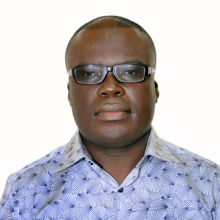Application of Data Science to Build Research Capacity in Zoonoses and Food-Borne Infections in West Africa (DS-ZOOFOOD)

No website available

Research Education

1UE5TW012566-01

The importance of Health Data Science in Africa cannot be overemphasized, as the burden of infectious and non-infectious diseases is striking across the continent. Despite this, health data science in Africa is grossly underdeveloped, which is mainly due to lack of well-trained data scientists. In the last few years, there have been efforts to address the Data Science training needs in Africa. However, these remain limited in scope and some of the crucial infectious diseases such as zoonoses and food-borne infections, which take a significant toll on the continent, have not been sufficiently addressed. The aim of the proposed training programme is to enhance research into zoonoses and food-borne infections in West Africa through the application of data science. We are proposing three training tracks as follows: (I) To provide a one-year research training to MSc students in West Africa. In this training track, we will support training of excellent candidates who have completed the first-year course work of a relevant MSc programme. The candidates will undertake a research project on a topic that applies bioinformatics, phylodynamics, and/or disease modelling to zoonoses or foodborne infections for their dissertation. (ii) To provide a one-year research training to faculty members from West Africa. In this training track, we will support early career scientists/faculty from universities and research institutions who are interested in developing a research career in zoonoses or foodborne infections. They will apply bioinformatics, phylodynamics and disease modelling tools in research on zoonoses and food-borne infections. (iii) To organize workshops to provide hands-on training in bioinformatics, phylodynamics and disease modelling to wider communities in West Africa. The long-term goal is to establish a core of West African scientists who can carry out rigorous health research projects using data science.
